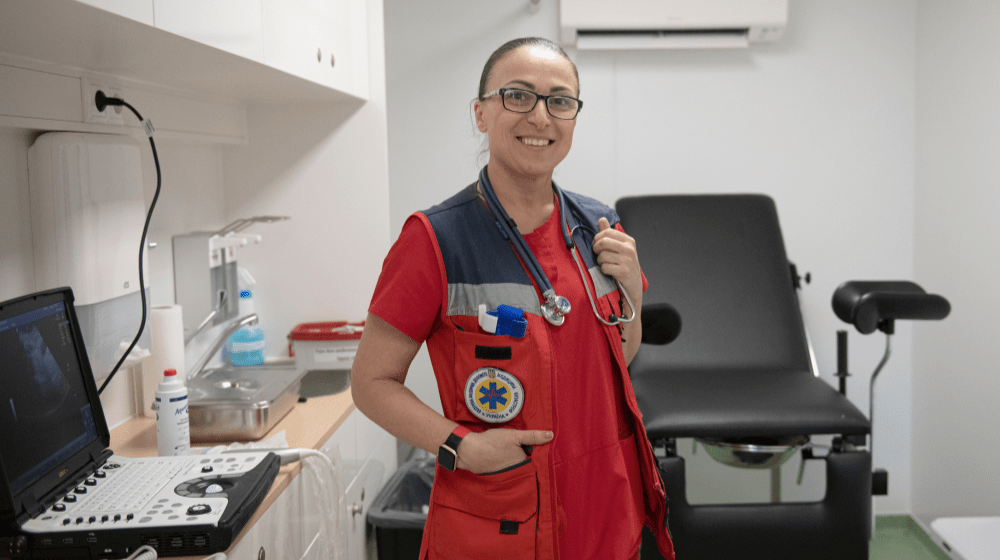"This ambulance is very well equipped,” said Dr. Olga Filipova, an obstetrician-gynaecologist, in Balaklia city, eastern Ukraine. “As the war continues to rage, this mobile unit is going to be very useful."
Dr. Filipova works in a UNFPA mobile maternity unit in Balaklia, a city that was liberated a few weeks ago. Even though there is still shelling, people are beginning to return home including women in need of health care.
“When war came to this area, women and children tried to escape from danger, hunger and the lack of medical help,” said Dr. Filipova. “Even now, when the Government of Ukraine has regained control of this area, and people start returning home, the capability of the local medical facilities remains very low.”
“Many people here need medical help. Older people have chronic diseases, many women and even pregnant women did not receive adequate medical assistance for months. As result we have patologies, severe clinical states among pregnant women and exacerbation of clinical conditions”- doctor Filipova said.
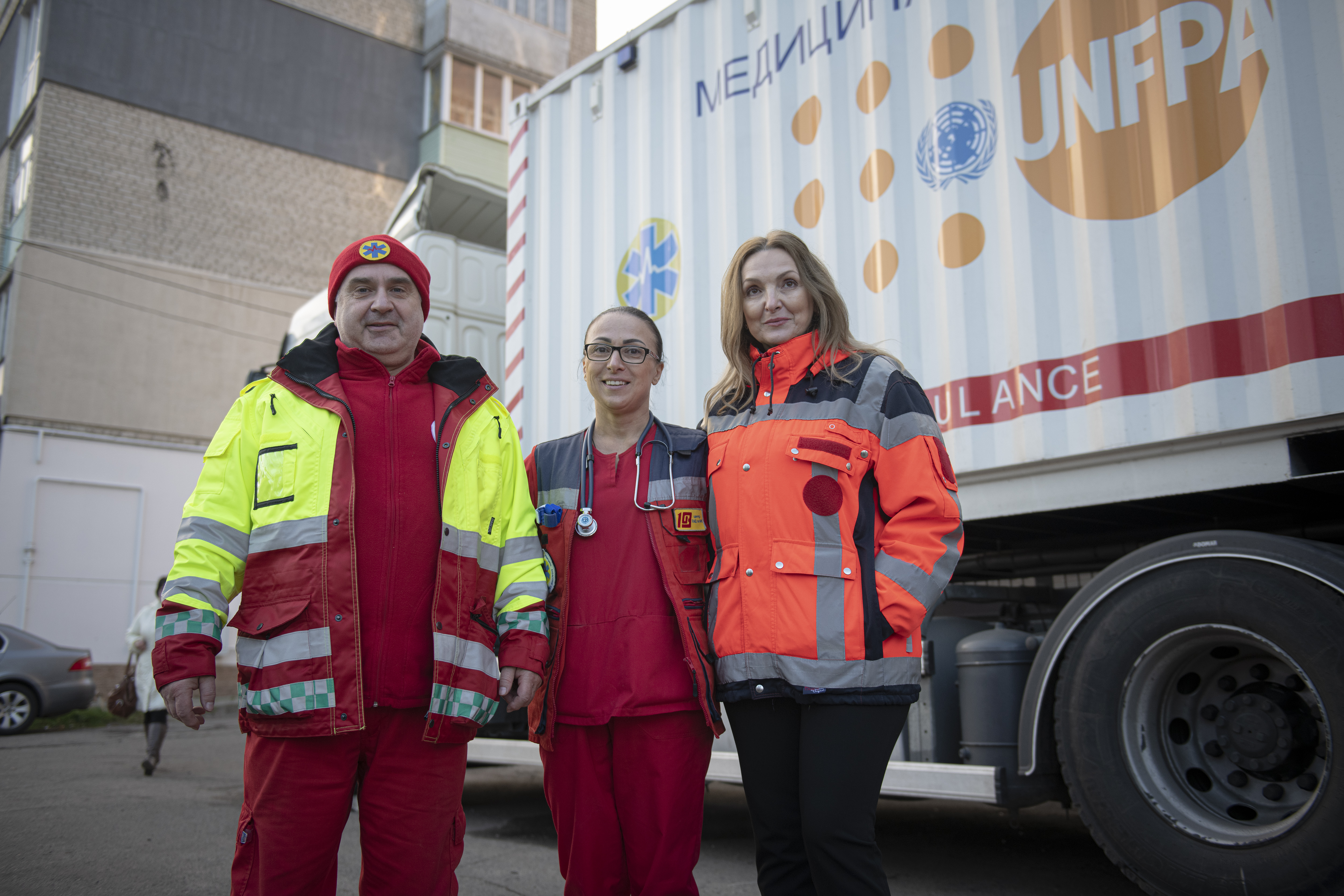
Even more, during the months of the war in Ukraine, many medical facilities were severely damaged. WHO recently reported 688 medical facilities being under attacks since this brutal war started in Ukraine. In addition, ongoing problems with the power supply, water and heating make it difficult to access the health services that are available.
"There are about 80,000 women of reproductive age in the liberated territories,” says Deputy Director of the Health Care Department of the Kharkiv Regional State Administration, Mr. Ihor Volchenko. “Because of shelling and problems with electricity, supply and security, we are forced to close hospitals and merge them."
Mobile maternity unit is a unique service, fully autonomous with electricity and water, that allowes to conduct even C-section services for women in the hardest conditions. Doctors can work in comfortable place, fully equipped with medicines and supply, provide all kind of examinations, analysis and even help new mothers to give birth in safety and cleanliness.
Bering in mind that most of healthcare facilities in this area are destroyed, like clinic in Izyum, for many people this is the only available option to receive help.
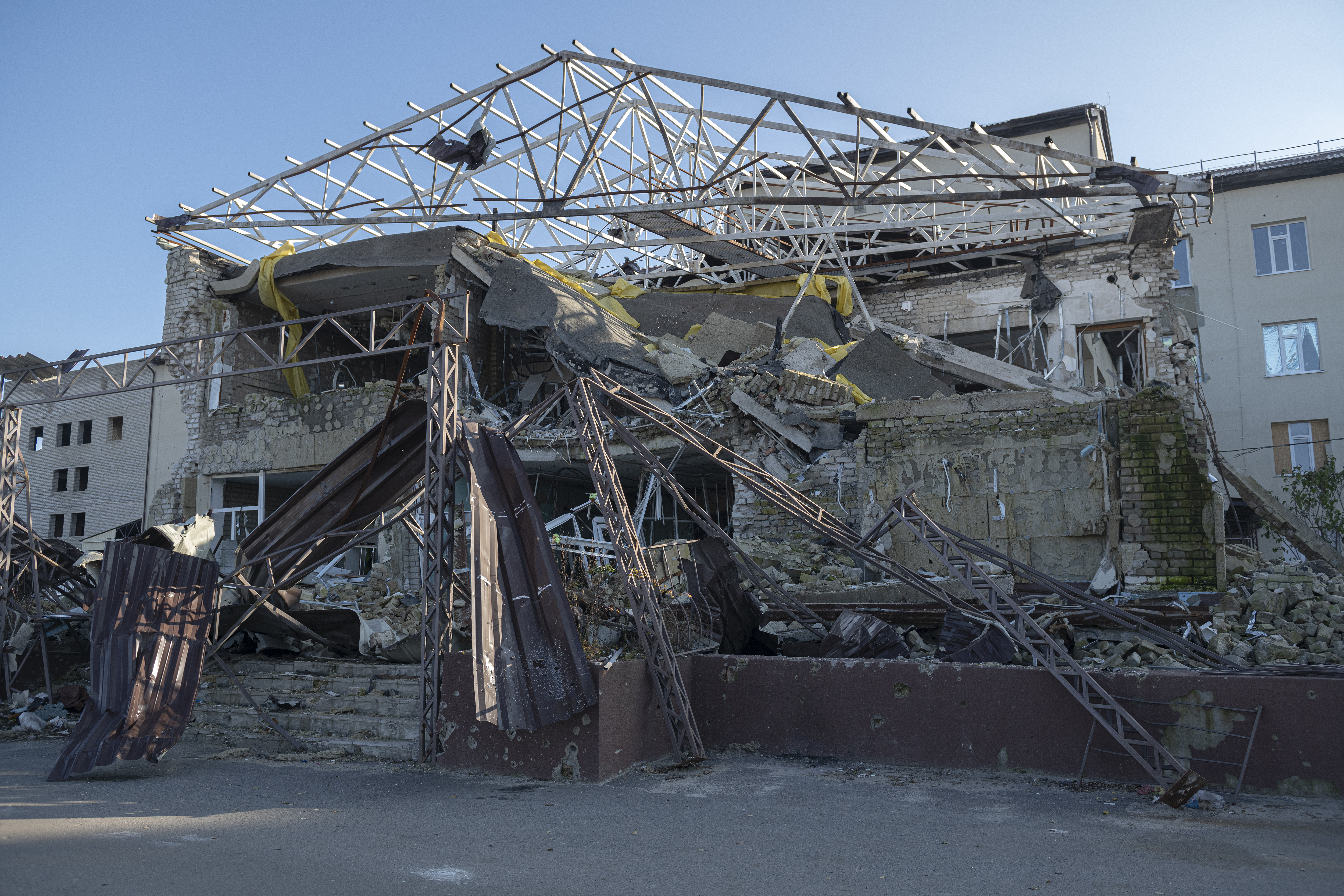
There are more than 2,600 registered pregnant women in the Kharkiv region, 107 live in de-occupied territories and more than 70 of whom will give birth within the next few months. All of them need help and support, which UNFPA ensures by opening new services and run psychosocial mobile teams, hotline etc.
“Situation is very complicated’ Jaime Nadal, UNFPA Representative in Ukraine said. “We work with many maternity hospitals across the country. And doctors says that number of premature deliveries, miscarriages and prenatal patologies are much higher than previously. Most women run to western Ukraine with hope to give birth in safety. But still there are women to stay under shelling and our work is not to leave them behind”.
For these couple of weeks, since unit has started operating, doctors doctors encounter the most common diseases which are cervical cancer, sexually transmitted infections, HIV infection and diabetes.
To meet the most urgent needs of women and girls, doctors working for UNFPA partners, the Disaster Medicine Centre, travel the region in the mobile maternity hospital to provide essential, life-saving sexual and reproductive health care.
“We can provide very wide assistance, based on the needs of women. From general examinations of women's health and basic analysis to consultations on family planning, contraception dissemination and referrals to other specialists. The most severe cases as well as pregnant women are referred to Kharkiv hospitals,” Dr. Filipova added.
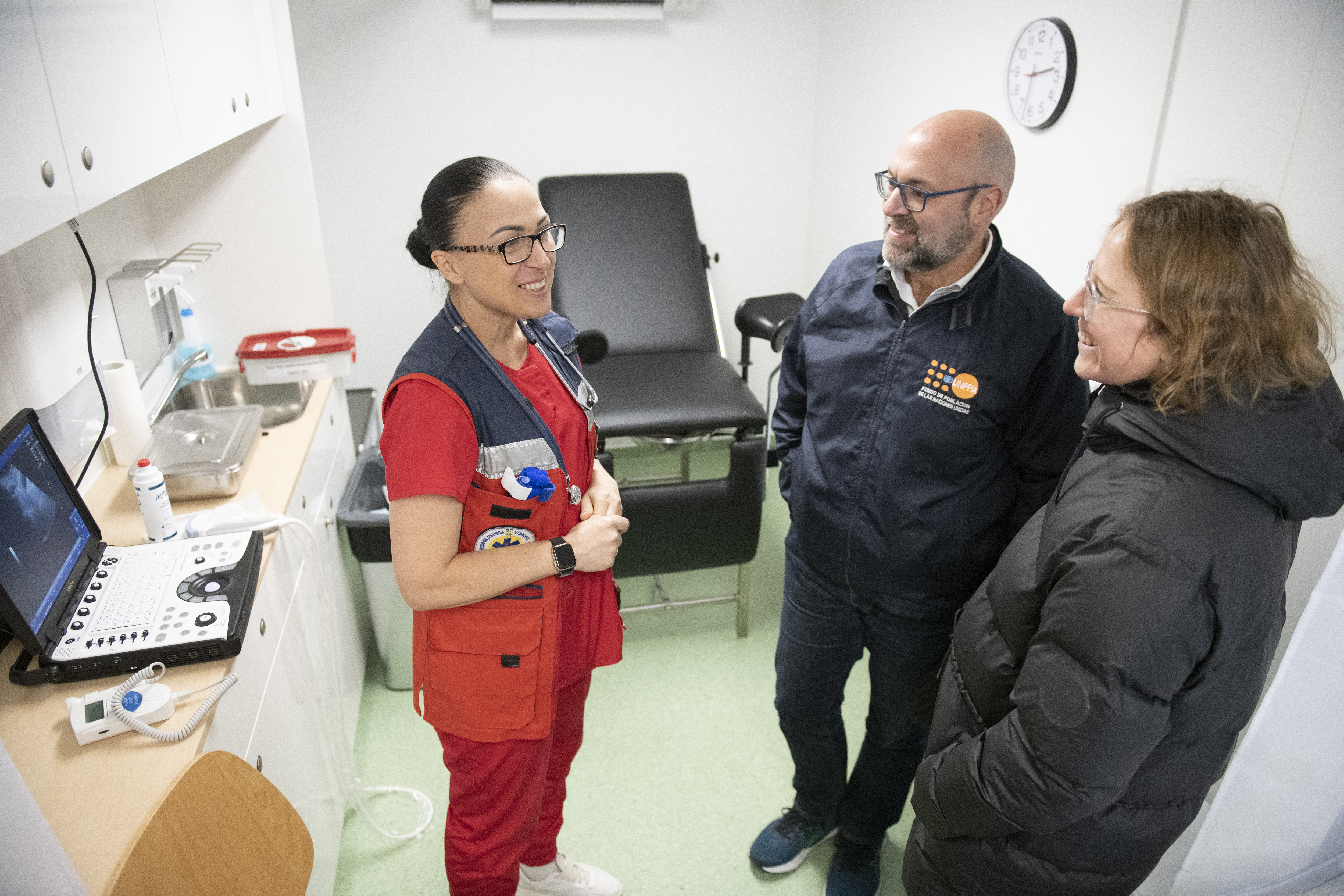
Being one of the biggest countries in the world, Ukraine faces unprecedented challenges. Disruption of logistics, supply chains and insecurity make medical service deliveries very complicated. Thus, hundreds to thousands of villages and town are isolated and people there can face additional challenges when seek help. UNFPA run mobile sexual and reproductive health clinics to cover urgent needs of these people.
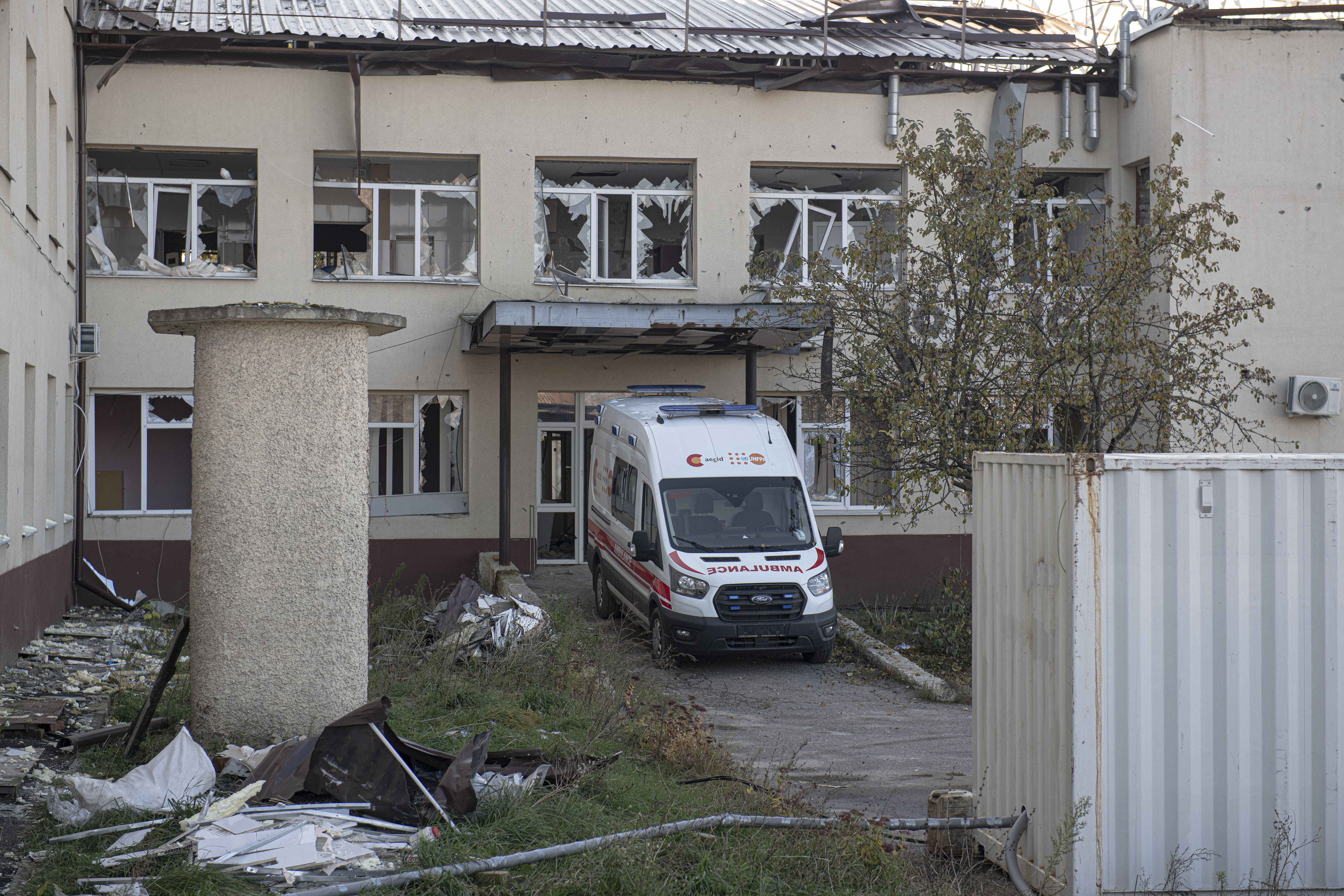
At least 32 sexual and reproductive health mobile clinics nationwide in Ukraine will start operating in coming weeks. We have already handed over one ambulance for the needs of the sexual and reproductive health mobile team, which will work in the Kharkiv region and is based at the hospital in Izyum.

